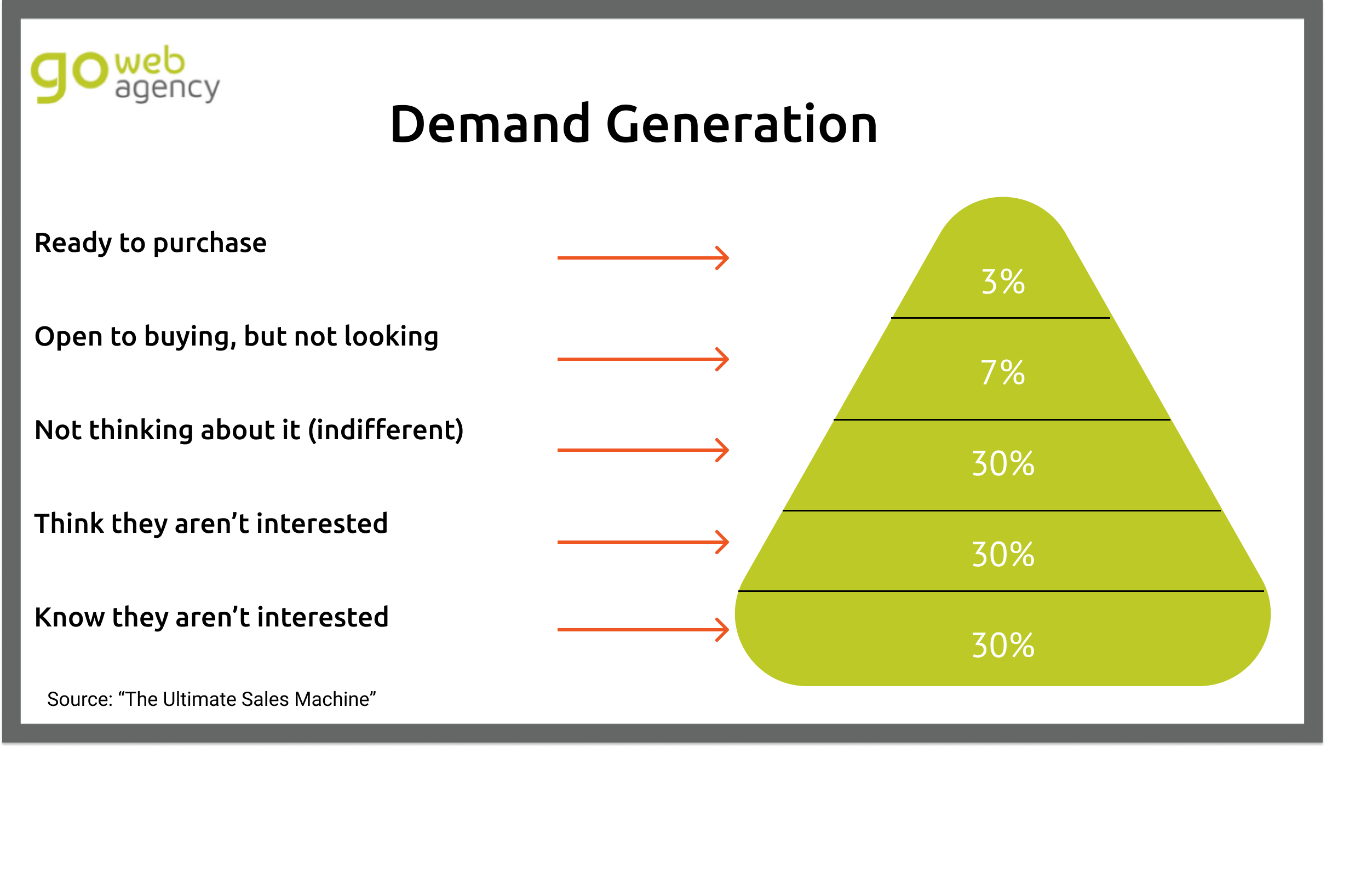What are Leads?
According to the Priberam Dictionary (a Portuguese online dictionary), the word lead can mean the protagonist role (for example, in a movie) or the introductory part of an article/news, which summarizes its content.
In Digital Marketing, a Lead is a potential customer who has shown interest in your product/service. A Lead is a business opportunity because he/she gave his/her contact information in exchange for some content.
Today, customers research what they want before making a decision. This new process is called the Buyer’s Journey, which goes through 3 phases:

In this sense, the more quality content you offer the lead during this process, the greater your chances of closing a deal. Managing your leads is essential to understand which stage of the sales funnel they are at. This way, you can align the information you should transmit in each phase of the funnel.
Why should we care about generating leads?
For many years Marketing has developed its strategies for the masses. However, in recent years there has been a trend towards personalization of marketing strategies. Customizing the strategy allows you to match your customer’s needs.
Having a visit to your website, for example, does not mean that the visitor is already in the purchase phase. According to Chet Holmes, only 3% of people are willing to buy.

Looking at the chart above, we see that we have 67% of potential customers for our sales funnel. For this, we use Inbound Marketing, which consists of creating relevant content to attract customers.
During the lead generation process, it is important to regularly manage your sales funnel. For this, you can use the classic Microsoft Excel. However, the larger the sales funnel, the more difficult it will be to manage manually. So here are two suggestions for lead management software:
- Hubspot: is one of the best-known tools for managing and automating marketing, sales, and customer service;
- RD Station: is a tool for automating marketing, managing the sales funnel and customer relationship.
What is, and what is it for, lead nurturing and qualification?
Lead nurturing means building relationships with potential customers. This phase consists of submitting relevant content to drive the lead on its purchase journey. The purpose of nutrition is to show the lead that the brand wants to help them without having a direct concern with the sale. This is a fundamental aspect to gain the lead’s trust.
Lead qualification, in turn, is about identifying the leads most likely to close a deal. The goal of lead qualification is to make sales more efficient, focusing on who can become our customers.
Good Qualification Generates Better Lead Conversion Rate
Lead conversion refers to the process of converting leads into customers. Nurturing leads and understanding their needs is essential for the success of this process.
To facilitate the conversion of leads, we can bet on several strategies, such as:
- Landing pages with information on a particular topic;
- Ebooks
- Events such as webinars and podcasts
- Content in infographic format
- Newsletters
Sources:
- https://blog.goweb.pt/leads-leads-leads/https://blog.goweb.pt/leads-leads-leads-outra-vez-leads/
- https://resultadosdigitais.com.br/blog/leads/
- https://rockcontent.com/br/blog/o-que-e-lead/
- https://resultadosdigitais.com.br/blog/jornada-de-compra/
- https://sendpulse.com/support/glossary/lead-conversion
- https://vwo.com/blog/lead-conversion-strategies/
